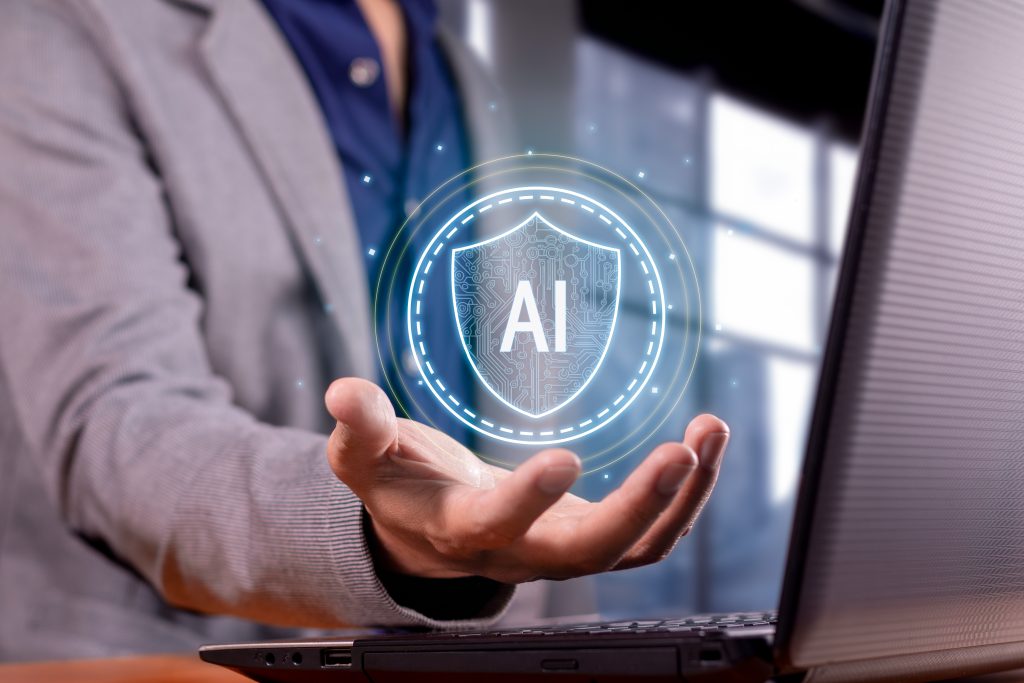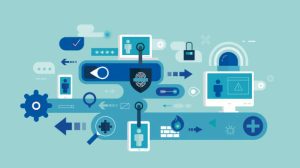In the ever-evolving landscape of cybersecurity threats, hackers are constantly adapting and finding new ways to breach networks, steal data, and disrupt operations. To defend against these sophisticated adversaries, businesses need cutting-edge tools that can match their agility. This is where Artificial Intelligence (AI) comes into play, offering a proactive approach to cybersecurity. In this blog post, we’ll explore how AI-powered threat detection can help businesses stay ahead of hackers.
The Changing Face of Cyber Threats
Cyber threats have become more diverse and sophisticated, posing significant challenges to traditional security systems. Hackers employ advanced techniques like zero-day vulnerabilities, polymorphic malware, and social engineering tactics to bypass conventional defenses. With the increasing volume and complexity of attacks, manual threat detection and response are no longer sufficient to protect against these threats effectively.
The Role of AI in Cybersecurity
Artificial Intelligence, specifically Machine Learning (ML), has emerged as a game-changer in the fight against cyber threats. AI can analyze vast datasets, detect anomalies, and recognize patterns that are beyond the capabilities of human analysts. Here’s how AI empowers threat detection:
- Continuous Monitoring: AI-powered systems continuously monitor network traffic, user behavior, and system activities to identify unusual patterns or behaviors that may indicate a threat.
- Rapid Detection: AI algorithms can quickly detect new and unknown threats, including zero-day attacks, by analyzing behavior and comparing it to established baselines.
- Behavioral Analysis: AI systems develop an understanding of “normal” behavior within a network, allowing them to spot deviations that may signal an attack.
- Adaptive Learning: AI continuously learns and adapts to changing threat landscapes, making it more effective in identifying evolving threats.
Key Benefits of AI-Powered Threat Detection
- Early Threat Detection: AI can identify threats in their early stages, giving organizations a better chance to respond and mitigate damage before a breach occurs.
- Reduced False Positives: AI reduces the number of false alarms, helping security teams focus on genuine threats rather than wasting time on harmless anomalies.
- Automation: AI can automate threat detection, analysis, and response, reducing the burden on human analysts and accelerating incident resolution.
- Scalability: AI-powered systems can handle vast amounts of data and scale with the organization’s needs, making them suitable for businesses of all sizes.
- 24/7 Monitoring: AI doesn’t sleep, providing round-the-clock protection and the ability to respond to threats as soon as they are detected.
Implementing AI-Powered Threat Detection
To effectively leverage AI-powered threat detection, businesses should consider the following steps:
- Assessment: Evaluate your organization’s current cybersecurity infrastructure, identify weaknesses, and determine the specific threats you need to defend against.
- Select the Right Solution: Choose AI-powered threat detection solutions that align with your organization’s needs and budget. Ensure they integrate seamlessly with existing security tools.
- Data Collection: Collect and centralize relevant data sources, such as network traffic logs, endpoint data, and user activity logs, to feed into the AI system.
- Training: Train the AI system using historical data to help it understand your network’s normal behavior.
- Continuous Improvement: Regularly update and fine-tune the AI algorithms to adapt to new threats and changes in your network environment.
- Human Oversight: While AI can automate many tasks, human analysts should provide oversight, validate alerts, and make critical decisions.
In the ever-escalating battle between cybercriminals and cybersecurity professionals, staying ahead of hackers is a constant challenge. AI-powered threat detection offers a proactive and intelligent approach to identify and respond to threats in real time, enhancing the overall security posture of businesses. By harnessing the capabilities of AI, organizations can bolster their defenses and better protect sensitive data and critical systems from evolving cyber threats.






